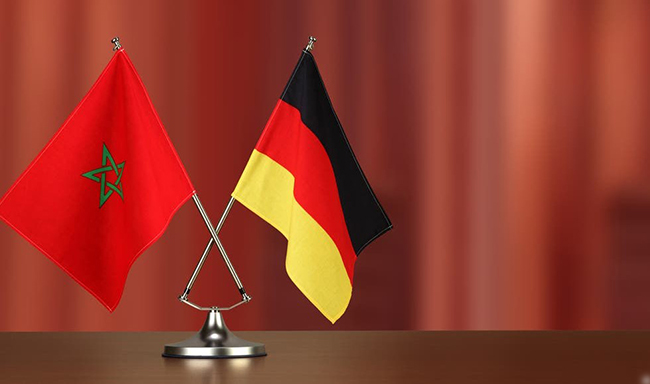The diplomacy of King Mohammed VI is a multifaceted diplomacy par excellence, whose international reach is "immensely envied," stated Omar Hilale, Morocco's Ambassador and Permanent Representative to the United Nations, on Friday in Dakhla.
"Royal diplomacy is not single-issue. It is a multifaceted diplomacy par excellence, whose international reach is immensely envied. It is credible because it has no hidden agenda and it is committed because it is deeply rooted in convictions and a long history," explained Hilale at the Maroc Diplomatique Sahara Forum held in Dakhla.
"It engages in all global issues because it aims to be a solution provider and not a source of trouble. It is listened to because it conveys a message of moderation. It is respected because it adheres to universal values," continued the Moroccan diplomat in his address marking the 25 Years of Royal Diplomacy.
Hilale emphasized that Royal diplomacy is sought after because it "excels in the art of building bridges between states and regional groups. It is regularly invited to take on international or regional responsibilities, facilitate complex multilateral processes, or negotiate sensitive resolutions or declarations of heads of state and government at the United Nations because it provides both assurance and reassurance."
In this regard, he highlighted the main facets of Royal diplomacy, including "spiritual diplomacy," as His Majesty King Mohammed VI, in his role as Commander of the Faithful, is the architect of a transnational and multidimensional spiritual diplomacy.
This diplomacy promotes authentic Islam, a culture of peace, intercultural and interfaith dialogue, and harmonious coexistence among peoples, while addressing contemporary challenges such as violent extremism, radicalization, racism, and hate speech.
Royal diplomacy, the ambassador added, also embodies solidarity with the Palestinian people, with the Palestinian cause being a core concern of the King and consistently at the center of Morocco's diplomatic action.
It is also a diplomacy of human rights, as evidenced by the significant advances in human rights made under the reign of the King. These achievements have "irrevocably cemented the image of a democratic Kingdom committed to the rule of law, open to modernity, and firmly respectful of universal human rights principles," noted Hilale.
The Sovereign's diplomacy also has a humanitarian vocation, rooted in the altruistic and solidarity-based values deeply embedded in the history of Moroccan Sultans towards vulnerable populations worldwide.
Moreover, Royal diplomacy is also characterized by its focus on European neighborhood relations and peacekeeping, as well as being a "south-south cooperation diplomacy." In this context, he recalled that His Majesty the King has traveled extensively across Africa, making 50 visits and opening up the markets of numerous African countries to Morocco's private sector and businesses across various fields.
Hilale explained that the diplomacy of His Majesty the King has, for 25 years, been based on foundational principles that underpin its strength and uniqueness: the sanctity of the national cause, the power of principles, independent decision-making, a clear vision of global challenges, transparency with bilateral and international partners, and the courage to stand firm without compromise or complacency.
These principles also include boldness and resilience in the face of regional and international upheavals, the ambition to position Morocco among the influential and active countries, unwavering respect for the United Nations Charter, steadfast commitment to international law, and consistency in multilateralism for the implementation of the UN's three pillars: peace, development, and human rights.
It also involves a firm commitment to international peace and security, the peaceful resolution of disputes, support for just causes, solidarity, and coexistence with other peoples, as well as proactive but discreet action, he explained.
Regarding the issue of the Moroccan Sahara, Hilale stressed that this matter has been and remains at the forefront of the diplomatic priorities of His Majesty King Mohammed VI since the first day of His Reign.
"The time He has dedicated to it, the daily attention He has given it, and the firmness He has demonstrated in its defense have profoundly influenced the management of this issue at the UN and beyond," he explained, highlighting that this has led to international recognition that the Moroccan Sahara is not just a matter of territorial integrity but also an existential cause for the Kingdom.
The sustained efforts and tireless awareness campaigns led by the Sovereign have solidified the justice of Morocco's national cause at regional and international levels. This has resulted in recognition and support for the Moroccanness of the Sahara by major countries such as the United States and France, as well as dozens of Arab, African, and Latin American countries, including thirty nations that have opened their General Consulates in Laayoune and Dakhla.
Hilale concluded by emphasizing that King Mohammed VI is a "visionary" Sovereign "in harmony with His era," a "skilled diplomat" and a "master of mediation." He is "an architect of compromise among various stakeholders," continued the ambassador, affirming that the Sovereign is "driven by the ambition for His Kingdom's diplomatic prominence, reflecting its centuries-old history, universal values, and confidence in a prosperous future."






